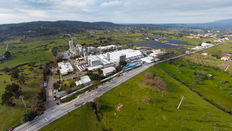- CARBIOS and Selenis signed a Letter of Intent to produce PETG from biorecycled PET waste.
- The partnership targets the Cosmetic and Healthcare packaging sectors in Europe and the U.S.
- CARBIOS' technology breaks down PET waste into PTA and MEG monomers.
- Selenis' polymerization process transforms these monomers into high-quality PETG.

Partnership Overview
CARBIOS and Selenis have signed a Letter of Intent to collaborate on producing PETG from biorecycled PET waste. This partnership aims to serve the Cosmetic and Healthcare packaging sectors in Europe and the U.S., leveraging CARBIOS' enzymatic depolymerization technology and Selenis' polymerization expertise.
Technological Process
CARBIOS' enzymatic depolymerization breaks down all types of PET waste into purified terephthalic acid (PTA) and monoethylene glycol (MEG) monomers. These monomers are then transformed into PETG through Selenis' advanced polymerization processes. The resulting PETG has the same properties as virgin PETG, making it suitable for high-quality packaging.
Application in Industries
PETG is valued in the cosmetics and healthcare industries for its clarity, durability, and resistance to mechanical and chemical stress. In the medical and pharmaceutical sectors, PETG ensures top packaging performance, sterility, and transparency, making it ideal for complex medical device packaging and pharmaceutical blisters.
Quality and Sustainability
The partnership follows two years of collaboration and extensive trials, resulting in high-specialty PETG grades that meet stringent industry requirements. This sustainable recycling solution aligns with consumer demands and regulatory standards, contributing to the transition to more eco-friendly packaging materials.

